Top 10 Alternatives to AWS
A reliable cloud computing platform is everything when it comes to developing and deploying modern applications. Your choice determines what you can achieve in terms of performance and flexibility.
AWS is one of the most popular cloud services currently and favored for its feature set. But there are many alternatives developers and business owners should look at.
Read on to know about the top 10 AWS alternatives.
Contents
What is AWS?
AWS (Amazon Web Services) is a cloud service platform from global e-commerce giant Amazon. It is among the most preferred infrastructure as a service offering available today. The platform also provides PaaS and SaaS offerings to meet the needs of businesses across a plethora of industry domains.
AWS is a trusted service provider for many global-level companies. It comes with various convenient features that harness the power of machine learning, AI, and analytics. AWS is relied upon widely due to the reliability it offers to users.
The features and services provided by AWS have changed how businesses around the world rely on cloud computing. It facilitates the effortless functioning of servers and applications and comes with convenient features such as CDN, managed database, and file storage.
Top 10 Alternatives to AWS
Azure

Azure is the combination of an online portal and a cloud platform that enables users to access and manage Microsoft resources and services. It lets users store data and use the same.
Azure is a cloud computing platform and an online portal that allows you to access and manage Microsoft’s cloud services and resources. These services and resources include storing your data and transforming it, depending on your requirements.
To get access to these resources and services, all you need to have is an active internet connection and the ability to connect to the Azure portal.
- Virtual Machine – This service enables you to create a virtual machine in Windows, Linux or any other configuration in seconds.
- Cloud Service – This service lets developers create scalable applications within the cloud. Once an application is deployed, Azure handles all the important tasks like provisioning, health monitoring, and load balancing.
- Azure CDN – Azure CDN (Content Delivery Network) is for delivering content to users. It uses a high bandwidth, and content can be transferred to any person around the globe. The CDN service uses a network of servers placed strategically around the globe so that the users can access the data as soon as possible.
- Express Route – Express Route is a service of Azure that facilitates on-premise private network connections with the Microsoft cloud and other services. Connections are established between the service and the network.
- Virtual network – Virtual network is a feature that enables users to establish secure private communications between different Azure services.
GCP – Google Cloud Platform
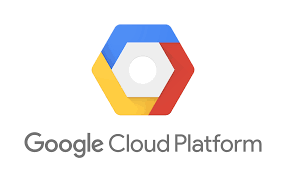
Google Cloud Platform or GCP is a collection of cloud computing services from Google. It uses the same infrastructure that many of Google’s products, such as Gmail, Search, YouTube, and file storage, work on.
Google Cloud Platform also comes with additional services for data storage, computing, machine learning, and more.
GCP users can enjoy services including a platform as a service (PaaS), several serverless computing environments, and an infrastructure as a service (IaaS).
The feature list includes:
- Containers – Containers provided by the Google Cloud Platform prove to be quite essential for PaaS users. They are useful for enhancing application development speeds and ensuring optimal scalability.
- Big Data – The Google Cloud Platform comes with a comprehensive big data offering and tools for big data processing and analysis. Using BigQuery lets users run queries on large volumes of data. They can also perform bulk data loading from their Google Cloud Storage account. Google Cloud Dataflow is one of the other offerings that helps users generate insights and monitor them with ease.
- Andromeda – Andromeda is a virtualization stack on which it’s services and networking tools are based.
- Load Balancing – HTTP Load Balancing is a feature for helping Google Cloud Platform users balance traffic for multiple instances across locations around the world.
- Cloud Debugger – Google Cloud Platform’s Cloud Debugger is a feature that helps developers have the choice of code debugging in production. Developers can mark code to be triggered by a server request. On the server request triggering the code, all of its parameters and variables are displayed.
Alibaba Cloud
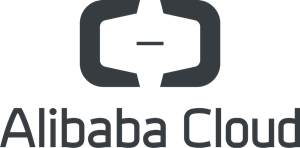
Alibaba Cloud or Aliyun is a China-based cloud computing service provider and a part of the Alibaba Group. It offers a vast range of cloud computing offerings for Alibaba’s e-commerce products and businesses’ online resources.
With Alibaba Cloud, users get access to pay-as-you-go services cloud services. Some of its features including Relational Databases, Elastic Compute, Big-Data Processing, Data Storage, and CDN.
The feature list includes:
- Persistent data storage – Alibaba Cloud’s ApsaraDB is a disk and memory based storage. It comes with fast read and write, and ensures data persistence.
- Backup and recovery – Alibaba Cloud generates instance backups and creates disaster recovery options, allowing users to recover instances through these. As a result, data loss due to human error is prevented and data stays consistent.
- Read/write splitting architecture – Instances with read/write splitting has proxy servers, read replicas and master-replica nodes. They make sure that performance and availability is provided along with multi-specification support. This architecture enables multiple concurrent requests for replica data reading. As a result, master node load is lower and costs can be reduced.
Digital Ocean
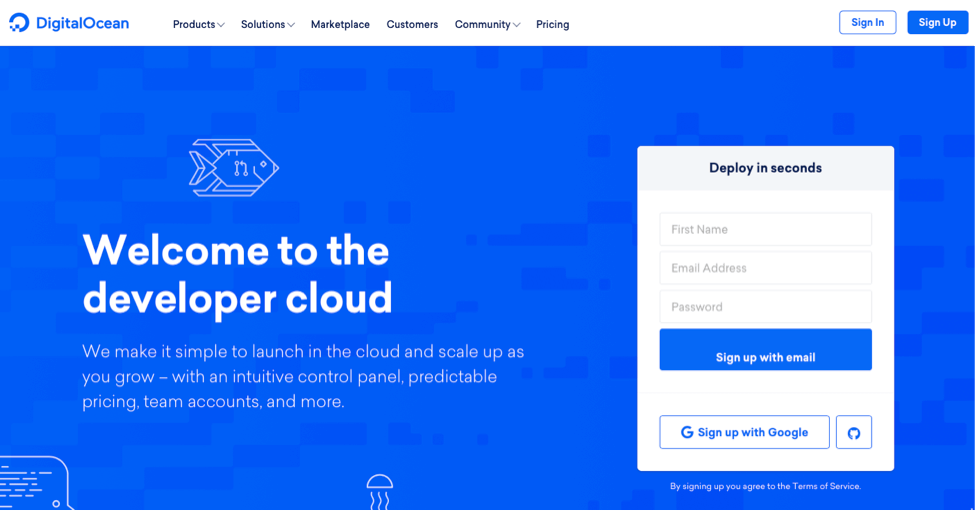
Digital Ocean is a virtual private server (VPS) provider that offers servers to users as Droplets. Applications can be managed on Digital Ocean by using a web-based UI or doctl command line. Businesses across industries rely on its IaaS offering. The provider lets users select Droplets size, application data centers, and choose a geographical location.
The list of features includes:
- Droplets – Droplets are Linux-based virtual machines that work on virtualized systems. Digital Ocean users have the option of creating Droplets based on their needs. Droplets can be used on a cloud setup or as standalone units.
- Block Storage – Digital Ocean Block Storage is a robust storage option provided by DigitalOcean. It lets users perform easy storage scaling to develop and expand large applications. Storage can be resized to an upper limit of 16TB.
- Backups – Digital Ocean makes backups as automatically-generated Droplet images. Users can create weekly backups to conveniently jump back to past app states. Backups can exist for upto 4 weeks.
- Snapshots – Snapshots is a disk imaging feature for Droplet and volume cloning. Using them helps in the creation of Droplets and volumes having the same content. This feature can help to protect assets and there are no storage limit restrictions.
Linode

Linode is a web hosting service provider that offers several Linux server-based VPS cloud hosting plans. Linode comes with several components for networking, storage, and cloud computing. Businesses around the world prefer the company’s offerings. Currently, Linode has multiple data centers across various regions globally.
Features
- Kubernetes – LKE or Linode Kubernetes Engine is the engine that lets users perform easy deployment and management of container apps and workloads.
- Shared Instances – Shared Instances refer to multiple resources users can rely on while developing cloud computing apps.
- Dedicated CPU – Linode has a dedicated CPU that helps to enhance the performance and reliability of resource-heavy apps. It is an important feature that can prove to be useful for most businesses.
- Block Storage – Block Storage is a Linode feature for helping users improve server storage capacity. This is important for holding onto your data even when Linode has been deleted.
Vultr
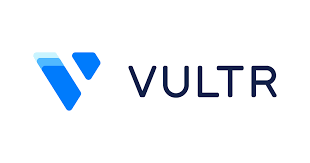
Vultr provides SSD-based agile cloud servers that are located around the world. The company provides a reliable and comprehensive hosting service for development purposes. Users get access to a standard platform and solid-state drives powered by high-end CPUs. The provider gives users the choice of up to 14 low latency geographical locations.
Features
- Vultr Data Centers – Vultr offers secure data centers spread across 15 worldwide locations for protecting the data of its users.
- Dedicated IP Addresses – Vultr also offers users the option of dedicated IP addresses which they can customize based on requirements. Powered by Intel cores, these servers provide a great deal of reliability.
- Custom control panel – The control panel of Vultr is a customer-centric offering. Several of its features can be installed instantly, helping developers to get more time for focusing on more critical tasks.
Oracle Cloud
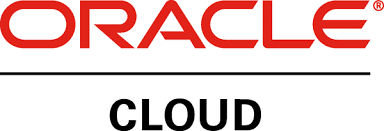
Oracle Cloud is Oracle’s computing service with features such as storage, apps, servers, network, and several services through Oracle’s data centers. The provider gives users the option of provisioning services based on demand.
The core features are listed below:
Oracle Cloud Infrastructure (IaaS):
The IaaS offering provided by Oracle lets users create and run multiple apps and services within the hosted environment provided by Oracle. Some of its key services are –
- Compute – Oracle customers get access to VM instances created for handling different workload and performance requirements for businesses across industries.
- Storage – The IaaS offering of Oracle comes with features such as object storage, block volume and archive storage for its users. These are useful for the needs of websites and large applications.
- Networking – Users get access to Virtual Cloud Networks, along with routing, firewalls, private network support and IP addresses. The provider also offers secure firewalls for added security and private network support.
Oracle Cloud Platform (PaaS):
Oracle Cloud Platform lets users create, deploy, grow and integrate cloud applications. Using machine learning and AI functionality enables the company to facilitate autonomous offerings for the needs of businesses. The platform as a service offerings by Oracle Cloud Platform include –
- Data Management – Data management is a tool offering several tools like data warehouse, NoSQL database and transaction processing. Data Management has features such as big data, Oracle database, Oracle Event Hub, big data cloud, Oracle Data Hub and MySQL.
- Application Development – Application Development is another platform as a service offering on the Oracle Cloud Platform. It is an integrated app development solution to meet the needs of large businesses, and suitable for the development of API-first and mobile cloud apps. Some features of Application Development include cloud native and container native support and lowered code development. Users can get access to offerings like AI platform, Java, autonomous Blockchain and Chatbots.
IBM Cloud

IBM Cloud is a solution that comes with two offerings, an infrastructure as a service (IaaS) and platform as a service (PaaS) to facilitate comprehensive development experiences. It performs scaling based on demand and offers support for businesses across all levels. IBM Cloud has deployments across global data centers and offers a high level of reliability to businesses with varying development needs.
Features
- Autoscaling – Autoscaling is a key feature of the IBM Cloud that helps developers perform scaling based on changing demands. It facilitates easy deployments and server cancellations.
- Security and compliance – IBM Cloud is a secure solution for the needs of organizations around the world. It comes with round-the-clock onsite security, video and convenient access control.
- Network and bandwidth – IBM Cloud provides unlimited bandwidth to users across different data centers.
- System administration – Users can gain access to an array of convenient system administration features such as remote rebooting, operating system reloading, monitoring and reports.
VMWare Cloud
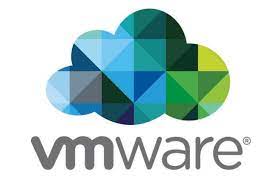
VMWare Cloud provides a suite of tools that combines several elements such as NSX (virtualization), vSphere, vRealize Suite for monitoring and cloud management, and vSAN, offered to users as a software-defined data platform (SDDC). Users have the option of public cloud, hybrid clouds and on-premises deployments.
Features
- Simplified Management – VMWare helps to improve performance and offers a high degree of availability for Kubernetes clusters. It offers integrated orchestration in cooperation with Tanzu.
- Flexible Deployment Options – VMWare Cloud helps users to take advantage of various deployment options for both public cloud and private cloud, and they can also choose self-managed options.
- Enhanced App Performance – VMWare Cloud facilitates HCI delivery automation by offering resources for storage, management, computing, and management. These can be utilized in data centers for facilitating simpler operations.
- Standardized Architecture – The standardized architecture of VMWare Cloud helps to enhance reliability, performance and better availability of Kubernetes clusters.
CloudSigma

CloudSigma is an infrastructure as a service provider offering users a selection of sophisticated hybrid hosting solutions. It provides highly flexible and reliable enterprise-level hosting options and cloud servers to US, Europe and APAC region customers. This web based IaaS offering helps businesses across industry sectors meet computing resources deployment.
Features
- SSD & Magnetic Storage – CloudSigma enables users of its cloud servers to take advantage of both magnetic storage and SSDs. This gives them greater flexibility in terms of data handling and storage.
- Custom KVM Cloud – CloudSigma KVM enables comprehensive virtualization, which translates to improved security, dedicated resource allocation, and more.
- ISO Certified Cloud – The cloud infrastructure and key offerings of CloudSigma comply with the data privacy and security requirements of ISO 27001 global standards.
Conclusion
The list of AWS alternatives given above has services that developers can consider for their projects. Comparing the features and offerings of each can help you make the right choice.
FAQ
What is AWS?
IaaS service from Amazon.
What are AWS core features?
– Virtual Machines
– Block Storage
– File Storage
– Load Balancers
– CDN
What are the best alternatives to AWS?
– Azure
– Google Cloud
– Digital Ocean
– Alibaba Cloud
– Oracle Cloud
– IBM Cloud
– Vultr
– CloudSigma
– VMWare
– Linode



